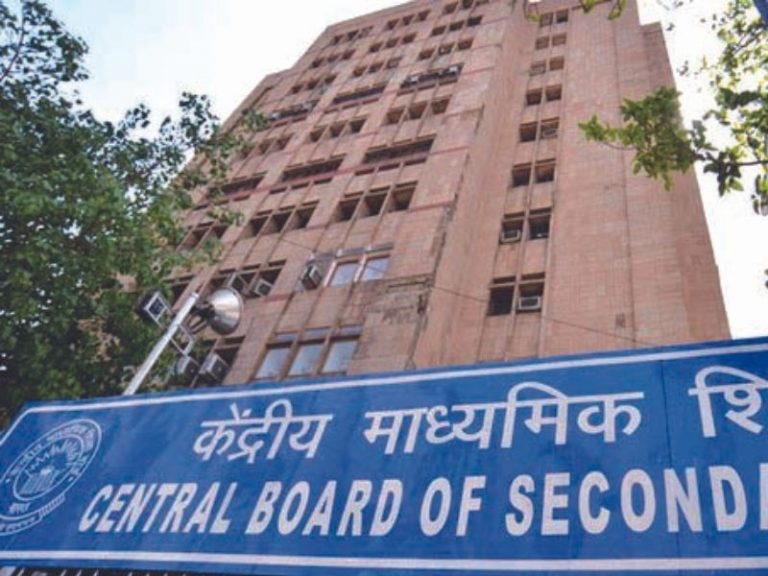Delhi: Beneficial examinations reform
Autar Nehru (Delhi)

CBSE HQ in Delhi: two exams solution
Following heavy criticism from Supreme Court for not having devised an alternative examination system for the pandemic academic year 2020-21 after board examinations were cancelled in the wake of the second wave (March-June 2021) of the Covid-19 pandemic, the Central Board of Secondary Education (CBSE) has initiated major examination reforms for the academic year 2021-22. It has decreed two terminal exams for class X and XII school leavers in lieu of single annual examinations.
Under the new examination system of CBSE — the country’s largest national examination board with 24,240 affiliated schools — the first terminal exam that will test students for 50 percent of prescribed syllabus, will be held between November 30 and December 11. Exam papers will be in MCQ (multiple choice questions) format. The second-term exam scheduled for March-April 2022 will be of the traditional subjective/objective type question papers with students given two hours to write each subject exam.
The new bifurcated classes X and XII school-leaving exam system, which is also likely to be followed by the country’s 31 state examination boards, is the outcome of widespread outrage that board exams scheduled to be held in April 2021 were repeatedly cancelled for fear of spread of Covid infection in crowded exam halls, and finally not held at all. On June 1, prime minister Narendra Modi announced cancellation of the CBSE class XII exams of 2020-21.
Subsequently, hearing a writ petition Meeta Sharma vs. CBSE & Ors (Civil) Nos. 522/2021) on June 17, the Supreme Court accepted an assessment formula devised by CBSE. As per the formula, students were assessed on the basis of marks obtained in pre-board exams conducted by affiliated schools (maximum 40 marks), half-yearly mid-term exams (30 marks) and periodic units (10 marks) subject to “moderation” by the board. However, the fallout of the board not conducting exams and students certified on the basis of marks awarded by schools themselves, has been raging grades inflation in the pandemic academic year 2020-21. This has posed problems for undergraduate colleges with admission cut-offs in several Delhi colleges set at 100 percent.
Nevertheless, academics have welcomed the two-exam initiative of CBSE. “Evaluating students on the outcomes of two term exams is better than judging them on the basis of one all-important exam. It will encourage them to study through the year and will reduce final exam stress and anxiety. CBSE has already pruned the 2021-22 syllabus by 30 percent and children get two chances in school-leaving exams. I am sure once it becomes the norm, students will prefer the new format,” says Dr. Sudha Acharya, principal of ITL School, Delhi and chairperson of the National Progressive Schools’ Conference, an association of 195 private CBSE-affiliated schools.
Certainly, CBSE’s adoption of the two-semester board exams system for school-leavers is a radical departure from past practice of the do-or-die final exam and is a half-way house of the continuous and comprehensive evaluation (CCE) system favoured by most intelligent educators and the report of the K. Kasturirangan Committee (2018) on which the National Education Policy (NEP) 2020 is based. Moreover, it is likely to influence the 33 state examination boards to follow its example. As a result preparing for class X and XII school-leaving exams is certain to become less stressful for millions of senior school students countrywide.
Last year (2020-21), over 3.35 million class X and XII students registered for CBSE board exams and the gap between CBSE which has 16,700 independent (i.e, private unaided) schools affiliated with it and CISCE (Council for Indian School Certificate Examinations), its rival national exams board, which has 2,639 affiliated schools, is widening. “There’s no doubt that in recent years CBSE has transformed into a highly innovative board that is constantly upgrading its syllabus by internationalising it, introducing vocational programmes and testing the thinking rather than memorisation skills of students,” says Arunabh Singh, director Nehru World School, Ghaziabad.
It is often remarked that it takes a crisis to goad the government bureaucracy — CBSE is an autonomous subsidiary (some say handmaiden) of the Union ministry of education — into purposeful action. Reform of CBSE’s half-century-old school-leaving exams system promises to be a beneficial outcome of the Covid crisis which has severely damaged the education system and economy.
Also read: CBSE: First term tests for class 10 to begin from Nov 30, class 12 exams from Dec 1

















Add comment